#dor lómin
Text
Prompt: In a spring mood!! Put a flower in the comments or ask box and I’ll write about where it grows in Beleriand, and its symbology and usage!
First set of flowers!! I’ll get to the others as soon as I can over the next few days and weeks!
Daisies requested by @senalishia, clover requested by @carinatae! I put these two together because they’re widespread flowers growing in open spaces
Daisies grow throughout Beleriand in open spaces including Estolad, Himlad, Ard Galen, the Talath Dirnen, the open spaces of Dor-lómin, and the open places south of Gondolin.
Though they are not the primary element on heraldic devices, they often appear in borders and as smaller elements including in some Noldorin families in Estolad.
Daisies are used as garnishes by the people of Marach. Hadorian children are often given crowns of daisies during the summer festivals and daisies appear on blankets, aprons and dresses. Dyers woad is used for the yellow parts.
Daisies have astringent properties and have been used by both elven and human cultures in Hithlum for minor cuts and insect bites.
(I thought a lot about Aerin while writing this post but I’ll spare you that ramble)
Clover
Many species of clover grow throughout Beleriand including white clover in most open areas except Dorthonion, the Gap and other northern regions. Red and meadow clover grows in northern Beleriand including parts of Dorthonion, the March of Maedhros, the Gap and Ard Galen.
It is used as a fodder crop by many cultures who raise horses or cows including the cavalry.
Clover is often depicted with bees of various species and elven writings on pollination have been based on observations of clover ☘️.
Clover is used to make honey by the green elves of Ossiriand and this process was later taught to various human groups.
#the silmarillion#the children of húrin#beleriand#Hithlum#dor lómin#Estolad#musing and meta#spring flower game
36 notes
·
View notes
Text
Agarwaen, son of Úmarth [ TURIN ]
THE CHILDREN OF HURIN cover edition


#silmarillion#tolkien#artmirka#fantasy art#children of hurin#turin turambar#silm art#tolkien art#tolkien fanart#prince of Dor-lómin#book cover#book illustration#tolkien tag#jrr tolkien#christopher tolkien
282 notes
·
View notes
Text
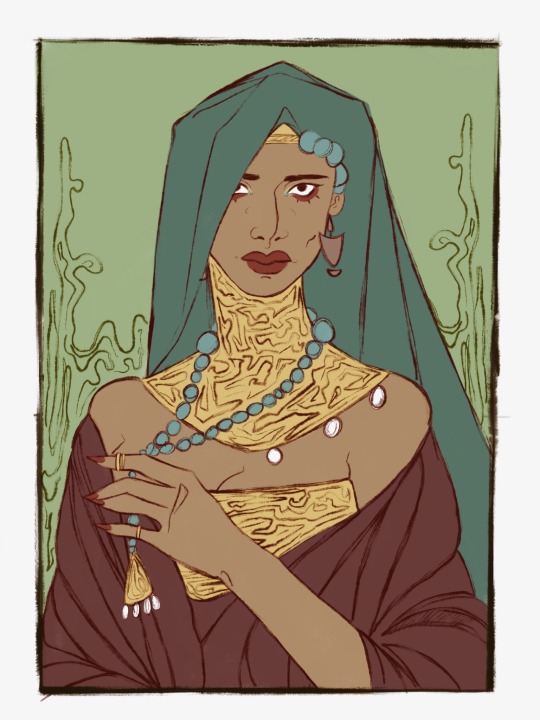
Lady Aerin for @outofangband for always humoring idle posts
#that and I’ve yet to draw much of the house of hador#house of hador#lady aerin#aerin#indor’s daughter#jrr tolkien#tolkien#kinswoman of húrin#dor-lómin#the book of lost tales#silmarillion#the silmarillion
299 notes
·
View notes
Text
I feel like post-Nirnaeth easterling-occupied Dor-Lómin definitely has a lot of songs that are covert allusions to real events they can't speak of out loud? and symbolism?
like there's this song about mourning a great tree that was needlessly cut down, and it actually means the warriors killed in the Nirnaeth. or there's a huge amount of ballads about a man who stole some trinket or other from a variety of increasingly grotesque and unsympathetic figures; for good measure the songs often end with the thief mockingly thanking the previous proprietor for his bride's new dowry. and magpies. nightingales are way too obvious, but everyone knows magpies steal jewelry so there's a lot of plausible deniability.
17 notes
·
View notes
Text
I’ll Make a Path to the Rainbow’s End, my entry for @officialtolkiensecretsanta 2022 is completed! Chapters 2 and 3 Below!
Giftee to be revealed in December 24, 2022!
#silmarillion#maedhros#fingon#russingon#fanfic#gil galad russingonion#ereinion gil galad#trans fingon#trans pregnancy#trans male character#trans tolkien#nsft#shameless smut#soft family fluff#dads having fun while the baby sleeps#gil gadaddy#gil-galad the seal guardian#hithlum#himring#dor-lómin
17 notes
·
View notes
Text
True millennial experience: Fingon leaving Dor-lómin and moving back to his dad's place.
235 notes
·
View notes
Text
We focus a lot on the strong bond between Fëanor and his seven sons, their oath, their loyalty, their sacrifice.
But can we pause for just a second and also take a look at Fingolfin and Fingon?
Fingolfin who "marched against his wisdom, because Fingon his son so urged him." Who stands by his eldest son even after he has spilled blood at Alqualondë. Fingolfin who assigns Dor-lómin to Fingon's lordship, the closest lands to the fortress of the King.
And Fingon, who in turn stays beside his father through the fire of dragons and Morgoth's volcanoes even after Turgon and Aredhel are long gone to Gondolin. Who gives up those same lands of Dor-lómin to the Hadorians and moves to live with his father. Fingon who upon Fingolfin's death "in sorrow took the lordship of the house of Fingolfin and the kingdom of the Noldor."
The co-dependency is so real, and I live for it.
336 notes
·
View notes
Text


Then Túrin sprang about, and strode against him, and fire was in his eyes, and the edges of Gurthang shone as with flame. But Glaurung withheld his blast, and opened wide his serpent-eyes and gazed upon Túrin. Without fear Túrin looked in those eyes as he raised up his sword; and straightway he fell under the dreadful spell of the dragon, and was as one turned to stone. Thus long they stood unmoving, silent before the great Doors of Felagund. Then Glaurung spoke again, taunting Túrin. 'Evil have been all your ways, son of Húrin. Thankless fosterling, outlaw, slayer of your friend, thief of love, usurper of Nargothrond, captain foolhardy, and deserter of your kin. As thralls your mother and your sister live in Dor-lómin, in misery and want. You are arrayed as a prince, but they go in rags. For you they yearn, but you care not for that. Glad may your father be to learn that he has such a son: as learn he shall.' And Túrin being under the spell of Glaurung hearkened to his words, and he saw himself as in a mirror misshapen by malice, and he loathed what he saw.
— THE CHILDREN OF HÚRIN, CHAPTER XI: THE FALL OF NARGOTHROND
#túrin#turin turambar#glaurung#silmarillion#tolkienedit#silmedit#sourcetolkien#the children of húrin#cohedit#mgifs*#fancast#tolkien
226 notes
·
View notes
Text
I’m not sure if this is a controversial take or not, but I don’t think Fingon was a particularly good or capable king. The Silmarillion almost seems to damn him with faint praise, his bravery and selflessness are always singled out. But nothing about him seems to suggest he’s a great leader.
All of his best and most heroic actions are either individual or directly leading small numbers of troops, the rescue of Maedhros, routing Glaurung with his horse archers. Not much is said of his leadership during the battle in Hithlum, between the fourth and fifth battles.
I think it’s quite notable that his lands in Dor-lómin are just handed over to Hador. It suggests to me that Fingon either had very little following there or that he wasn’t doing a good job of ruling it and even Fingolfin saw this. After Fingolfin’s death he’s the only viable Nolofinwean heir, Turgon and Aredhel are missing, Argon is dead.
I also think it’s notable that everyone calls the alliance the Union of Maedhros, and Fingon is unable to leverage Orodreth and Nargothrond to back it. Maedhros is the power behind Fingon’s throne, and everyone knows it. Maedhros is the politician and the military strategist. Fingon has little skill or little interest in these I think. I also like the idea that despite the love between them, Maedhros is manipulating Fingon at least a bit. Maybe unintentionally, but Maedhros is a Machiavellian at heart, a determined and capable pragmatist. He will trample the hearts of those he loves to get what he wants.
I also think it’s notable that Fingon charges in after Gwindor while Turgon hangs back. Fingon has let the tail wag the dog, and been drawn into breaking his strategy by one of his subordinates. He’s passionate and emotional, Húrin has to restrain him from charging even before this! Turgon doesn’t get drawn in even when Fingon does, and I’m pretty sure that Fingolfin and Maedhros would not have done this either. That’s not to say Gwindor should have been abandoned to die, but providing some force to relieve them and cover their retreat when they inevitably get bogged down and have to pull back (like Turgon did for Fingon) is very different to committing the whole army to a gamble made with no prior thought.
I like Fingon! He has many good qualities, and up until the 5th battle was a major factor in the success of the Noldor. He’s brave and dashing, selfless, a good cavalry commander. He rescued Maedhros and stopped a civil war! He routed Glaurung! But I do not think he was ever a good king.
#fingon#silmarillion#my posts#I do like him!#I promise!#But I think there is a lot more to being a good king in Tolkien than being a good person#And Fingon is almost my go-to example of this.#Edited because I wrote Orodreth when I meant Gwindor *
303 notes
·
View notes
Note
Could I request Morwen for the drawing prompts? Or anything Narn related? Totally ok if not!
-@outofangband
by all means! prompts are like chew toys for my brain, and it forces me out of my comfort zone and to try new things/characters/concepts ❤️

Morwen Eledhwen, Lady of Dor-lómin
140 notes
·
View notes
Text
People always talk about Fingolfin "following Fëanor" during the Flight, but hardly ever mention that his words to Fëanor are just an afterthought, a bonus, not the main reason he went. The first and one of the two most prominent reasons was because Fingon urged him. And Fingolfin marching in the Flight of the Ñoldor against his wisdom because Fingon urged him is so fascinating to me, mostly for what it may imply for Fingon angst.
I mean he was at the forefront of Fingolfin's host until at least Alqualondë; though after Alqualondë it's never mentioned again, so I wonder if he stopped leading first after that. But my point is: Fingolfin marched behind him, he followed Fingon. And what became of him following Fingon into exile? The Doom of the Ñoldor, Alqualondë, Fëanor abandoning them, them needing to cross the Helcaraxë and losing tons of people, Argon and Elenwë's deaths, etc etc...
Not that any of this is directly Fingon's fault, of course, but I wonder if Fingon had a moment where he looked at his father after Fëanor abandoned them and just thought "This is my fault, he's here because of me. He could have been happy with his wife, mom, and brother in Valinor but instead he followed me and now we're Doomed and in despair".
Because after that, Fingon followed Fingolfin. He followed his father across the Helcaraxë, he saved Maedhros in part to heal the rift between their hosts and make things easier for his father, he held Dor-Lómin for his father and then vacated it when it was given to Hador, he worked seemingly directly for his father as a war commander during the Siege (beating back Glaurung, that orc host that tried attacking them from the north etc). It just seems to me that he was glued to his father's side and did almost everything for him, for his sake. I wonder if this was to "make it up" to Fingolfin in his mind for dragging him into this mess, and/or maybe because after Alqualondë Fingon no longer trusted his own rash decisions.
This is just one potential theory/interpretation, I know, but... Mmm, yum, yummy angst,,,. ..
#tolkien#the silmarillion#fingolfin#fingon#house of fingolfin#alqualonde#feanor#idk man i just think Fingon loved his dad a lot#of course Fingolfin wouldn't blame Fingon for anything#Fingolfin also marched for the sake of all his people after all#he might still have gone if Fingon hadn't urged him
180 notes
·
View notes
Text
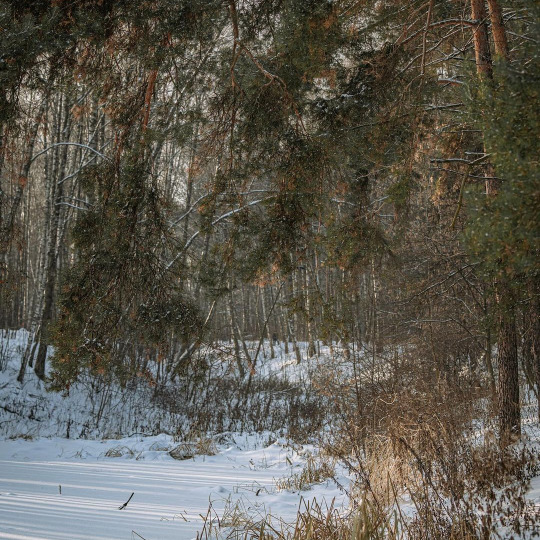




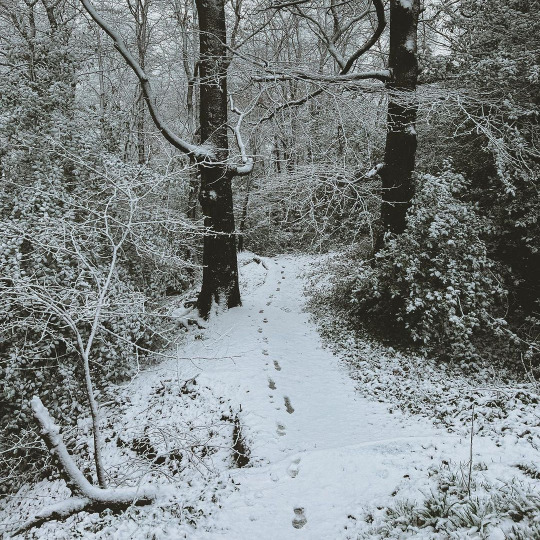



Winter in Dor-lómin!
Hithlum winters are cold and snow falls heavier in Dor-lómin than in Mithrim and greater Hithlum. The horses and cattle of the Hadorians are bred for their thick coats.
x x x x x x x x x
autumn, spring
58 notes
·
View notes
Text
I kinda feel like with how much Elrond gets depicted as the heir to Doriath or Gondolin or the House of Fëanor, or all or none of the above, we sometimes forget about his human half.
(or human 3/8ths, whatever)
On Balar, did he ever wander among the escapees from Dor-lómin, the fled from Brethil, the survivors from Sirion, learning their songs and stories and hopes and griefs? Did he find his childhood playmates, now grown? Did any survive? Does he remember them?
Did he ever stand beside his brother as Elros gave mighty speeches of unity and the strength of the Secondborn? Did he, in battle or in uneasy alliance, meet the descendants of those who betrayed Maglor and his kin, who enslaved Tuor and his kin?
Did he ever brave the moonless dark of Taur-nu-Fuin, seeking the ruins of Ladros or the mire that was once Tarn Aeluin? Did he ever wander the scorched plains and shattered encampments of Estolad? Did he see the Hill of Slain and guess which skeleton may have been more recent than the rest? Was another skeleton holding its hand, an arrowhead in its skull?
Did he grudge Elros the Bow of Bregor or Dramborleg or the Ring of Barahir? Did he think to keep relics for himself, if immortal memory could not suffice? Did he know the Bow's name?
In Lindon, did he befriend the Men who refused Númenor? Did he live alongside them for centuries as they lived and died? Did he seek out Dor Firn-i-Guinar, if it may have survived?
Did he find it?
Did he send letters to the West through Númenor, seeking the truth of Tuor's fate? Did he ask after the ancient legends and myths of the House of Bëor, now only remembered by Finrod Atandil? Did he befriend the ancestors of the Dunlendings, distant kin of the House of Haleth? Did he speak against the deforestation of Enedwaith and Minhiriath, their homeland? Did he welcome those who fled into Imladris, if they sought it?
Did he visit Númenor? Did its kings listen to his counsel? When did they stop?
Did he welcome Elendil as a kinsman, as a nephew, or as a stranger?
(I could go on into the Third Age but I think this is getting long enough already.)
88 notes
·
View notes
Photo
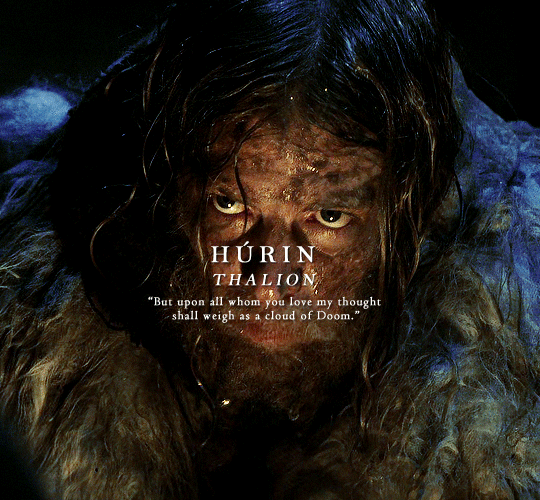

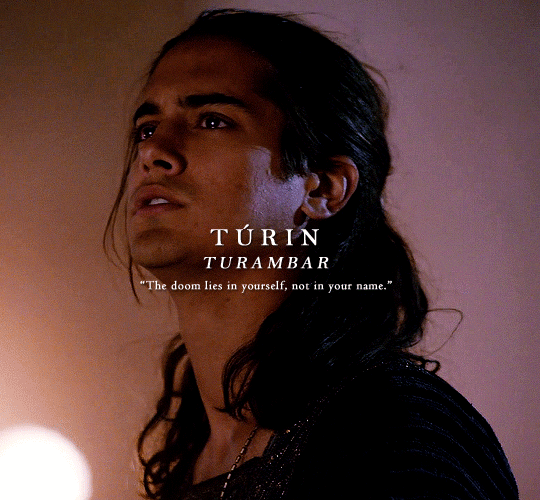
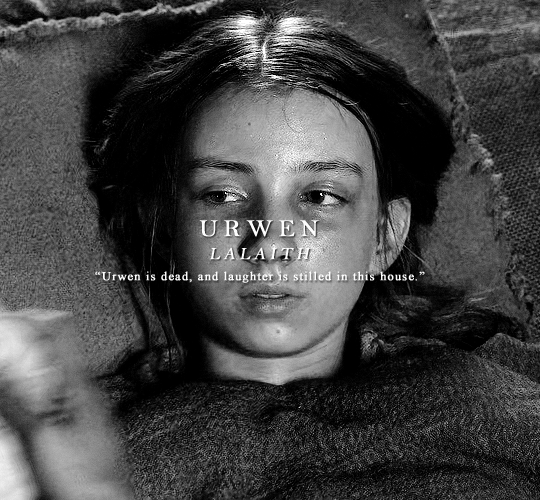
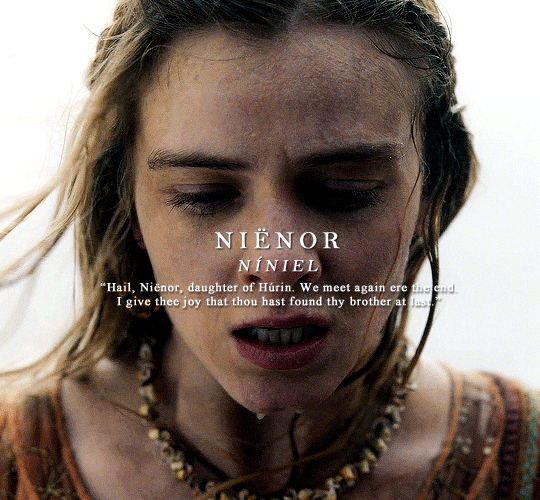
Then Morgoth stretching out his long arm towards Dor-lómin cursed Húrin and Morwen and their offspring, saying: "Behold! The shadow of my thought shall lie upon them wherever they go, and my hate shall pursue them to the ends of the world."
— THE CHILDREN OF HÚRIN, CHAPTER III: THE WORDS OF HÚRIN AND MORGOTH
#tolkienedit#tolkiensource#silmedit#cohedit#the children of hurin#the children of húrin#the silmarillion#húrin#morwen#túrin#lalaith#nienor#tolkien#fancast#gf*#this turned out more depressing that expected#a nice family set! that was the original plan
738 notes
·
View notes
Text
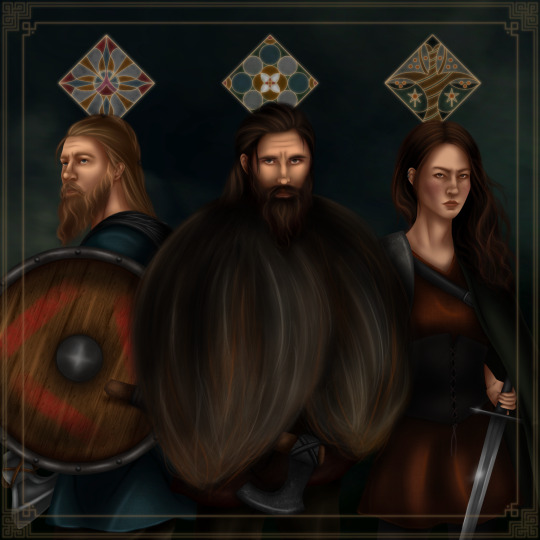
⚔️Three Houses of Edain⚔️
A little over three centuries after the Noldor had returned to Middle-earth, Finrod discovered a new people in the glens of the Blue Mountains. These were Men out of the distant East of Middle-earth, the first of their kind to be seen in Beleriand. These Men crossed the mountains as three distinct peoples, but each of these peoples became allies of the Elves in the Wars of Beleriand. The name Edain became associated with these friends of the Elves, and their leaders gave rise to three houses: those of Bëor, Haleth and Hador.

House of Bëor
Bëor was the first of Men to cross the Blue Mountains into Beleriand, and his house is thus considered the first of the houses of the Edain. Bëor himself became a vassal of Finrod, and many of his descendants also served the Elves. Later generations of this house held the land of Dorthonion, until it was lost to Morgoth in the Dagor Bragollach. The greatest of the heroes of the House of Bëor was Beren, who escaped from Dorthonion and captured a Silmaril from Morgoth's crown.

House of Haleth
The people known as the Haladin spoke their own language, alien to that of the other Edain. They were the second house of Men to cross the Mountains, and settled for a while in the southern part of Dor Caranthir. Faced with a sudden assault by Orcs, they united under a leader named Haldad, but he was slain defending his people. His daughter Haleth, from whom this house took its name, led the survivors into the west, until they reached the Forest of Brethil, where they settled. This house of the Edain is noted for their friendship with the Drúedain, with whom they shared their forest home.
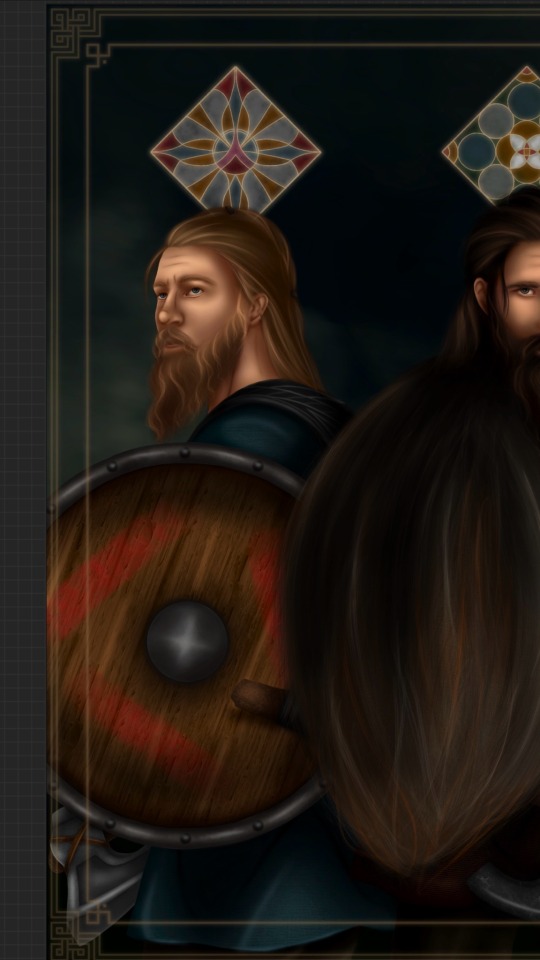
House of Hador
The Third House of the Edain derived from the followers of Marach, who led his people across the Blue Mountains soon after the other houses. The Men of this House built a strong alliance with Fingolfin's people in Hithlum. Indeed, Marach's great-great-grandson Hador was made Lord of Dor-lómin by the High King of the Noldor, thus giving his name to this renowned House. Among Hador's famous descendants were Húrin and Huor, Túrin and Tuor, and Eärendil the Mariner.
“Do you forget to whom you speak? Such things you spoke long ago to our fathers; but we escaped from your shadow. And now we have knowledge of you, for we have looked on the faces that have seen the Light, and heard the voices that have spoken with Manwe."
~ Húrin Thalion in The Children of Húrin, "The Words of Húrin and Morgoth"
#beor#house of beor#haleth#house of haleth#hador#house of hador#edain#jrr tolkien#silmarillion#silmarillion fandom#silm art#lord of the rings#lotr#lotr fanart#lotr fandom#lotr elves#elves#tolkien elves#tolkien fanart#tolkien#fantasy#fantasy art#fantasy character#finrod felagund#fingolfin#caranthir#house of fingolfin#house of finarfin#morgoth#sauron
60 notes
·
View notes
Text
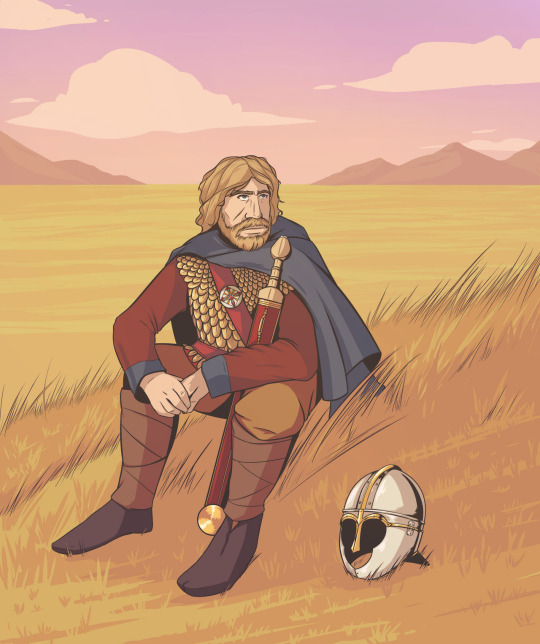
Húrin Thalion, the Steadfast.
The father of Túrin Turambar, head of the house of Hador and the last of the lords of Dor-Lómin.
The first thing you'll notice about this is I made him look very late roman, with a spatha and a late roman helmet, and with a clasp bearing the heraldry of his house in his sword belt. I thing the aesthetic of early migration era/late roman fits pretty nice with the edain of most of the First Age, while the elves should look a bit more fantasy, and more "medieval" compared to men, at least in this time period of the Middle-earth.
#armor#fantasy#fantasy art#knight#byzantium#fan art#jrrt#tolkien#tolkien art#tolkien fanart#silmarillion#silmarillion art#the silmarillion#lotr#silmarillion imagine#silmarillion fanart#fanart#silmarillion fandom#turin#the children of húrin#Húrin#thalion
154 notes
·
View notes